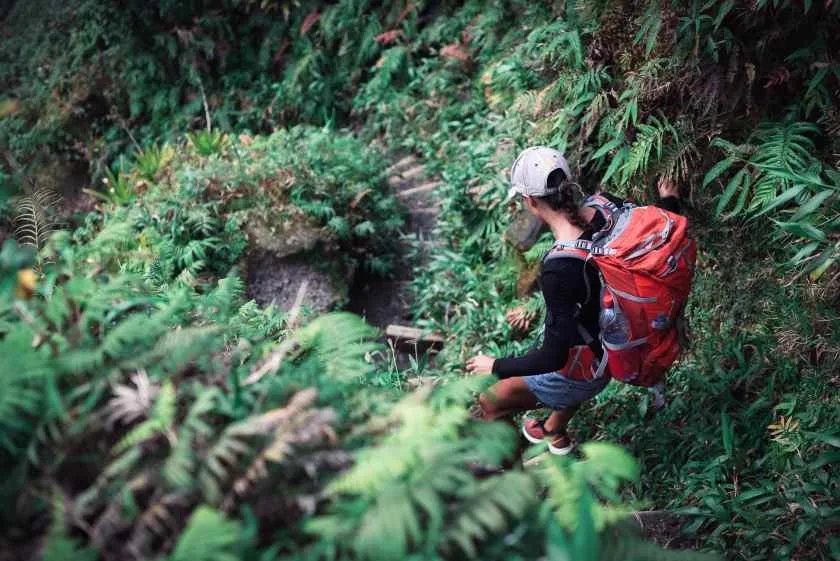Tuesday, July 29, 2025

Strategically located in the Roerich estate, the Karnataka Tourism Department has decided to step up efforts of converting Bengaluru into a sustainable tourist spot and brought expedited formation of the Roerich Eco-Tourism and Cultural Hub, a grandiose ₹99.2 crore project which will not only boost eco-tourism but also salvage it’s rich culture history. The venue falls under the estate of Roerich and Devika Rani, on Kanakapura Road, outskirts of Bengaluru.
It is among the projects under Swadesh Darshan 2.0 launched by the Union ministry of tourism and seeks to offer tourists a combination of cultural and natural experiences. The idea is to blend conservation with tourism through the development, creating an area that will provide sustainable lodging, nature trails, art galleries and cultural spaces.
Eco – Tourism and Benefits:
The project is under pressure as it is to be completed within the deadline to get central funds under the Special Assistance to States for Capital Investment (SASCI) scheme. The Karnataka Tourism Department has to comply to this schedule to avoid ₹65 crore of funding lapse in case the project does not get finished by March 2026. The funds will be a part of the total project cost of ₹99.2 crore, with the state government having earlier allocated the balance ₹34 crore. With this on flagship, the tourism department is willing to showcase Karnataka’s ecotourism potential across the country.
When completed, the Roerich Eco-Tourism and Cultural Hub will give tourists to the valley access to guided nature trails, wildlife watching, eco-sensitive places of stay and workshops on Roerich’s art and philosophy. The site will also include a visitor centre, eco-cottages, an amphitheater and an art museum displaying the works of Roerich, who’s renowned for his artistic creations that amalgamate Russian and Himalayan ideas.
The majority of the Roerich estate is not used today at all, but everything in it is interesting by some kind of historical and artistic inspiration. The association of Nicholas Roerich’s name with India and the enrichment of Indian culture by the ideas of the Roerich Pact and the Banner of Peace render this place particularly suited for the eco-tourism development. The artist’s connections with the then the area and the contributions of Devika Rani to Indian cinema add to the culturally rich history of the estate. The goal of the eco-park project is to establish the attention to this unparalleled historical inheritance and to facilitate tourist access to the site so that, coming there, tourists would be able to enjoy not only the beauty of nature but the artistic heritage of the Roerich and Lopukhin.
The estate is located within an important elephant corridor linking the Bannerghatta and Savanadurga forest ranges, worrying wildlife conservationists. Though the region is revered for its wildlife diversity with elephants and leopards as regular sighting the department of tourism insists the design of the project is sensitive of the environment of the region. This addresses the potential negative impacts of wildlife movement from the project activities, through wildlife friendly fencing, and eco-sensitive construction, that is, methods that balance construction with the natural habitats. Furthermore, the government has made full environmental assessments to make sure that the construction project harmonise with the local environment.
Tourism Importance:
The tourism department is ensuring a greener tourism project, with waste management, water conservation and renewable energy built into the eco-tourism hub. Natural landscaping and planting of trees will be incorporated in the estate’s development so its visual is harmoniously laid out with the surroundings. The focus will be to reduce impact on the environment from tourism as well as promoting education programs to visitors on the theme of sustainability.
While it will draw tourists to Bengaluru, the impact on economy is expected to be felt in immediate vicinity as well. Local communities are likely to find new sources of income by reactivating jobs in hospitality and guiding as well as maintenance and there will be people in the area, eating in the local restaurants and trading in the local shops, no doubt stimulating the wider local economy.
The tourism department of Karnataka is ready to exploit the eco-tourism popularity for the same intention of promoting the state as the front of state in sighted tourism development. Combining cultural heritage with nature conservation, gaining inspiration from the national Swadesh Darshan scheme for development of theme based tourism circuits in India and to create robust infrastructure and inculcating both sustainability and community involvement for strengthening the local economy and support community livelihoods.
The Karnataka administration has also underscored that the attraction is not only going to be dedicated to attracting tourists from across India, but also tourists internationally, especially those with a taste for nature, art and history. The eco tourism hub is strategically located and ensures a easy access and is perfect for travelers from around the world who are seeking cultural and environmental experiences for a while.
The department of tourism has proposed phased development of the Roerich Eco-Tourism and Cultural Hub the first phase will primarily be about infrastructure including a visitor center, eco-stay facilities, and other basic amenities. Later stages will add to the site, also offering educational programs on Roerich’s life and work and conservation programs for the regional plants and animals.
People moving ahead will keep a watch that the development happens in the purview and gets cleared of the environmental norms and what they promise about a sustainable tourism happens as well. If you want to know about the project and the development, you can visit the tourism department’s website and get regular updates.
Conclusion:
The successful completion of the Roerich Eco-Tourism and Cultural Hub will be a major milestone in Karnataka’s on going efforts to develop and augment its eco-tourism infrastructure and set an example for the other states to follow. With tourism centered on sustainable development, culture and environment protection, the Roerich Centre would emerge as an important place in Karnataka’s tourism map in the days ahead.
(Source: India Tourism.)







